Ways of processing gooseberries in spring
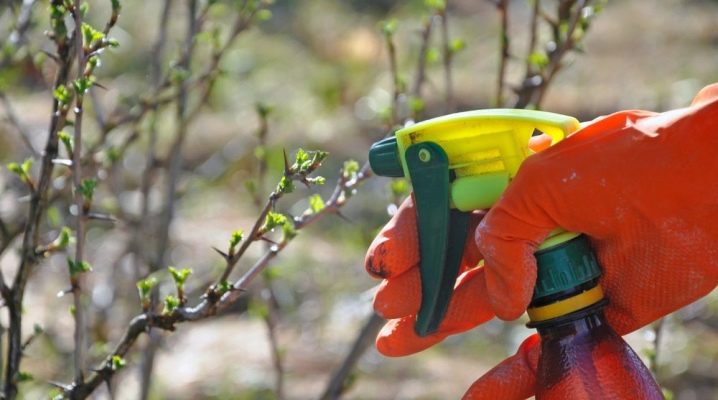
Gooseberry is one of the earliest summer cottage crops. She comes to life first, which means that the attention of pests and diseases will be focused on her. In order to prevent unpleasant situations, it is necessary to carry out spring preventive treatments.
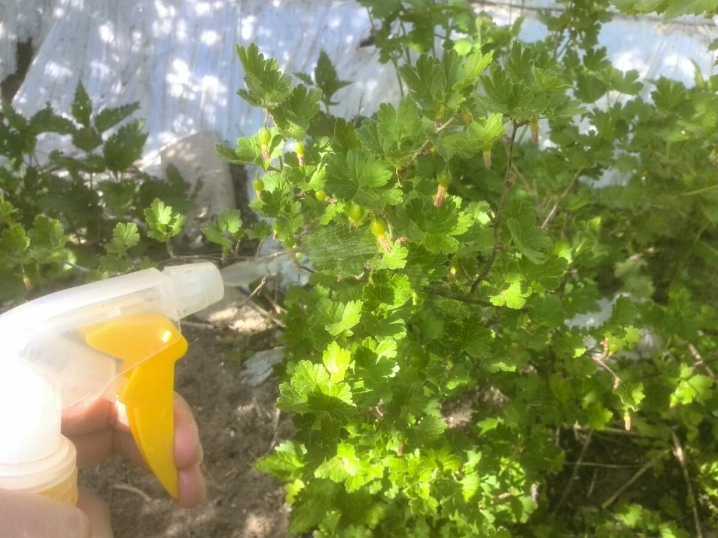
Fundamental rules
Spring processing is very important for gooseberries. It allows you to prevent the appearance of diseases such as spheroteca, white spot, anthracnose, rust.
It will also help against ticks, leaf rollers, aphids, copperheads and other parasites.
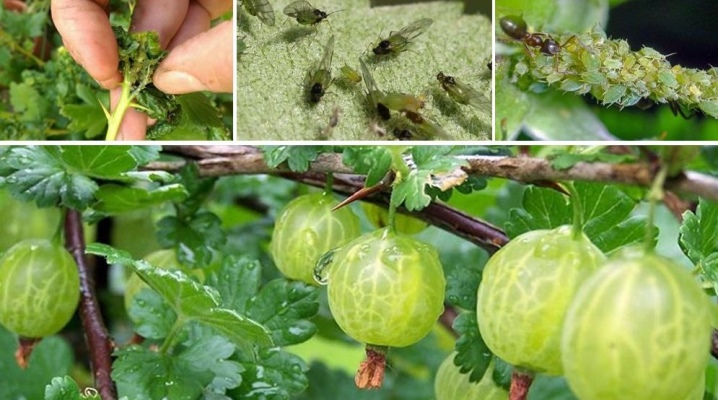
But in order for the processing to be effective, it is necessary to remember a number of rules for its implementation.
- If a chemical is used, you need to take care of your own safety. Do not let the solutions get on the skin or in the respiratory system.
- Spraying is carried out on days when there is no wind. There should be no sun either, otherwise the solution will dry out too quickly. Cloudy weather is optimal, but not before or after rain. The procedure is recommended to be carried out in the early morning or evening hours.
- Any spraying is carried out only after sanitary pruning of the bush. So they will also help to heal the wounds.
- Chemistry treatments cannot be carried out during the flowering period of the culture and the formation of fruits on it.
- Try to alternate solutions, as pathogens quickly adapt to one thing.
- Solutions must be thoroughly filtered before use. In addition, for breeding, you should take water at room temperature and settled.
- Carrying out the procedure, it is necessary to apply the product not only to the stems and leaves, but also to the gooseberry tree trunk circle. If it starts to rain immediately after treatment, the next day you will have to repeat everything (this does not apply to systemic drugs).
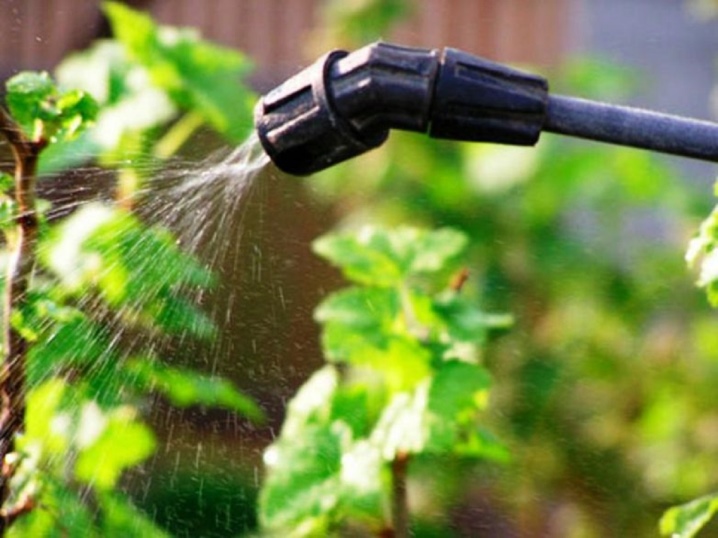
Timing
Spring processing of gooseberries can have different dates, since the culture grows in very different climates. It is necessary to focus on the conditions of the region, as well as on the growing season of the culture itself.
- The very first treatment is carried out immediately after winter, as soon as the snow has melted. The first step is to inspect the plant, removing deformed buds. Then they carry out sanitary pruning and mulch the trunk circle. After that, the soil and gooseberries are treated with fungicides.
- The next treatment is carried out when the buds began to swell, before they bloom. This is around the middle or end of March, but depends on the region. Fungicides and acaricides are used.
- The third prophylactic treatment is carried out at the moment the buds open, but before they turn into buds. Reapply anti-tick agents. You will also need to spray with insecticides against caterpillars and butterflies. An additional measure is fungicides, which will protect against powdery mildew.
- The fourth time is processed at the beginning of the formation of ovaries. The purpose of the procedure is to prevent the appearance of aphids and powdery mildew.
- All subsequent treatments are carried out without the use of chemicals. Biologicals are an extreme case, but they are also undesirable. The interval between treatments is approximately 10-14 days.
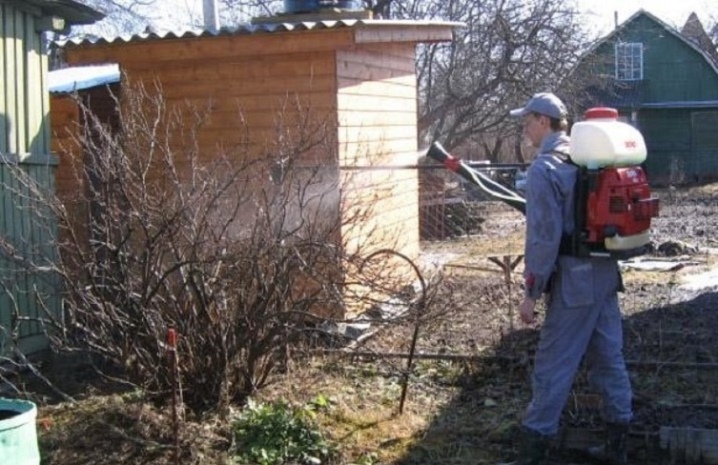
Spraying with boiling water
In early spring, you can scald plants with pitch. This is a great way to get rid of disease-carrying pests. In most cases, we are talking about ticks. In addition, dousing protects against many diseases, awakens the plant.
You can water gooseberries in late February, early March, late March. It's difficult to say, you need to take into account the region. It's good if there is snow outside.The plant should not show signs of life, otherwise the procedure will be traumatic for it. The bush should be watered after the first sanitary pruning and removal of unusual buds.
The twigs are tied - this way the procedure will be more effective.
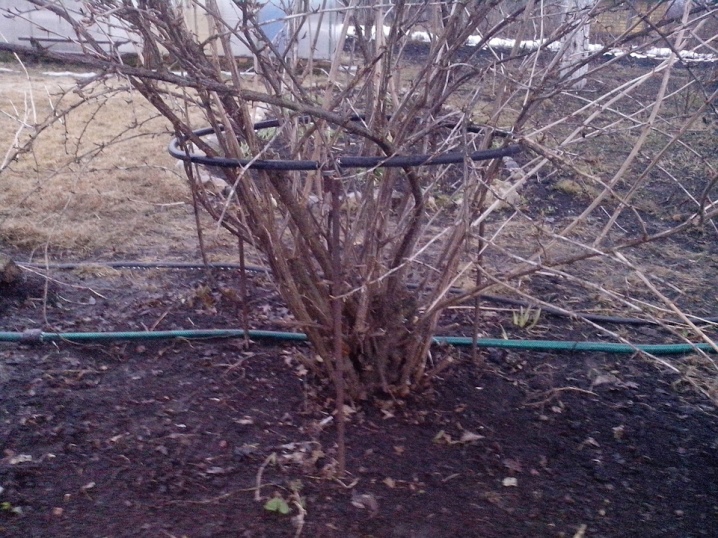
Then the water is boiled and cooled to a temperature of 70–80 degrees. Collect in a watering can and begin to water the plant. It is important to try to get hot water on each branch. In this case, you cannot act on the same one for more than 5 seconds. If watering is carried out in this way, then 10 liters is quite enough for several bushes.

The use of chemicals
You can also treat bushes from diseases with the help of chemicals. They are effective and efficient and are widely used by gardeners. Here are the three most popular remedies.
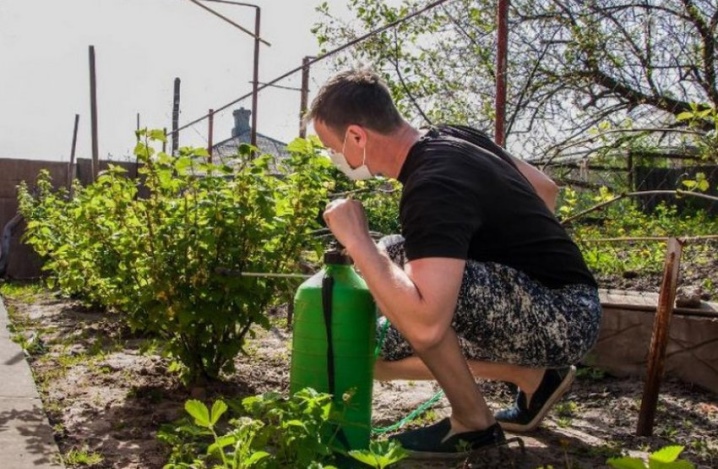
Vitriol
Plants can be sprayed with both copper and iron sulfate. Both types help well against lichens, scab, anthracnose, white bloom that forms with powdery mildew. If you take copper sulfate, you need to observe the concentration of 1% (this is 100 grams of the product for 10 liters of water), and if it is iron, then 3% (300 grams). It is necessary to prepare solutions correctly.
Do not use metal utensils, as they react with the agent.
The fungicide is dissolved in warm water and then used immediately. This remedy will not stand for a long time. It is recommended to spray in early spring, during budding, as well as after flowering. It is important that the temperature outside does not exceed 30 degrees Celsius. Otherwise, you will not wait for the result from the procedure.
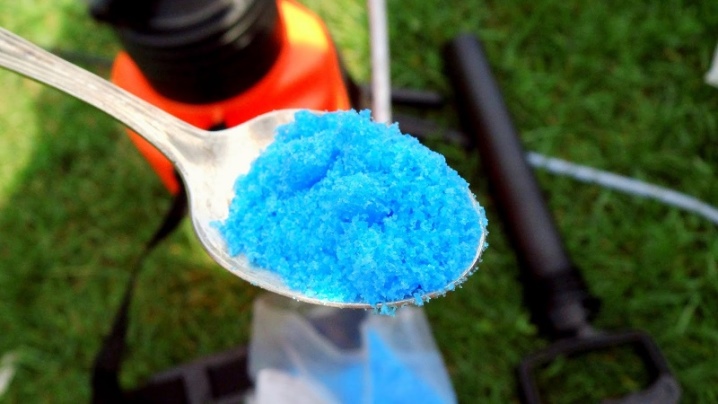
Bordeaux liquid
It is another popular fungicide that has been used by gardeners for over a century. Protects against spotting, powdery mildew, rust. Prevents the appearance of scab. You need to process gooseberries with it three times in the spring. You can prepare the solution at home.
To do this, you need to take two containers of 5 liters and a glass of warm water. 100 grams of vitriol is mixed in a glass, and then it is poured into the first container, which is filled with water brought to a boil in advance. In the second container, 150 grams of slaked lime is combined with cold water. After that, the liquid with vitriol is slowly poured into water with lime. Thus, you should get 10 liters of the mixture. No more than two liters of solution is spent on each bush.
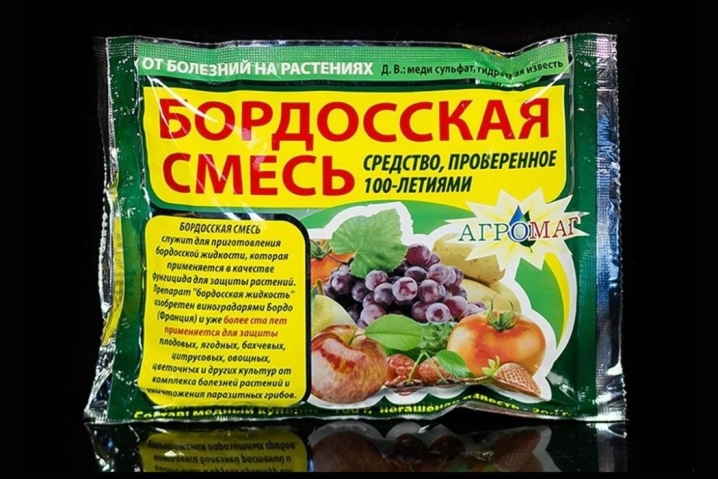
Urea
Another name for this drug is urea. This is both a fungicide and nitrogen fertilization, which will allow plants to grow quickly.
If urea is used as a fungicide, the concentration will be quite high. For 10 liters, at least 500 grams of the product is used. It can instantly burn the leaves, but it is harmless to the branches. Treatments are carried out until the kidneys dissolve. For the procedure to bring even greater results, you can add about 100 grams of copper sulfate.
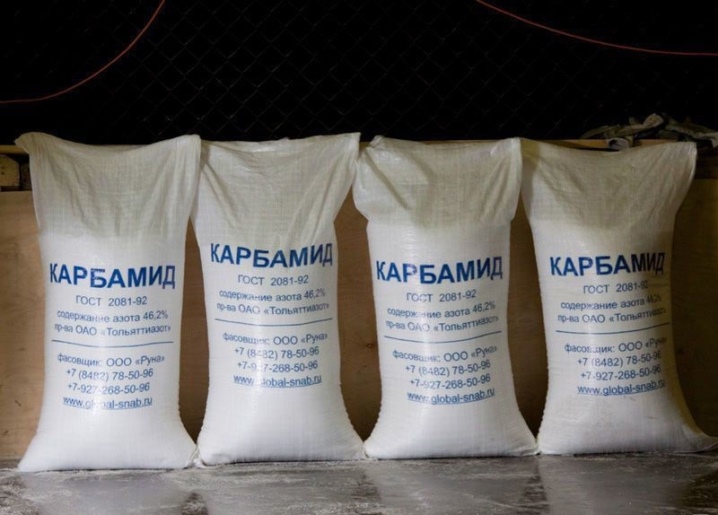
200 grams of liquid soap will also improve the quality of the solution. This will help the mixture settle better on the crop.
In addition to these agents, other fungicides can be used. The main thing is not to exceed their dosage so as not to burn the plants.
- "Topaz". Will help against powdery mildew, rust, anthracnose. Sprayed in the spring at any time.
- Fundazol. A good remedy against late blight, rust, mosaic. Apply once in the spring.
- "Oxyhom". This fungicide will protect against late blight and spotting. It is used in mid-March, and then 2 more times. The interval between the last two procedures is 14 days.
- Fitosporin. A popular drug that can save from late blight, spotting, rust, powdery mildew. You can use it at any time.
- Topsin-M. Protects against powdery mildew, anthracnose, rust. Apply at the first signs of illness at any time in the spring.
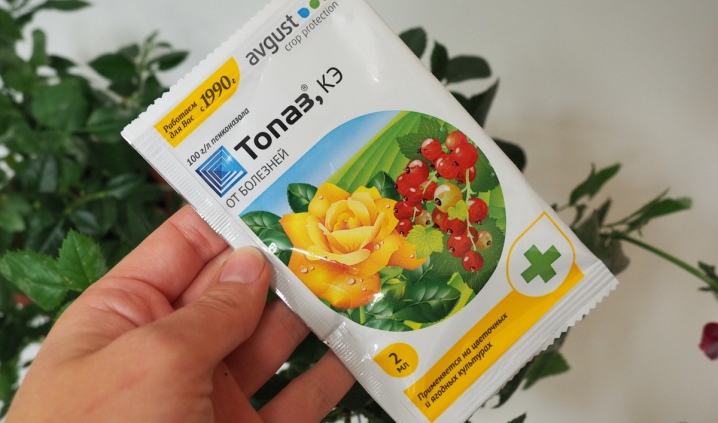
In addition, you will have to attend to the treatment against insect pests. Here are some good remedies.
- "Prophylactin". Prevents the appearance of ticks, leaf rollers, aphids, kills parasites that hibernate in the soil and on leaves. Processing is carried out in March, before the start of sap flow.
- Aktara. Destroys aphids, applied before the flowering of the shrub.
- "Spark". Kills aphids, leaf rollers and other similar parasites. Best applied before flowering.
- Fitoverm. The tool will destroy any pest. Apply immediately upon appearance, repeat 2 times at intervals of a week.
- "Decis Profi". Allows you to get rid of aphids and glass. 1 spring treatment is enough at any time.
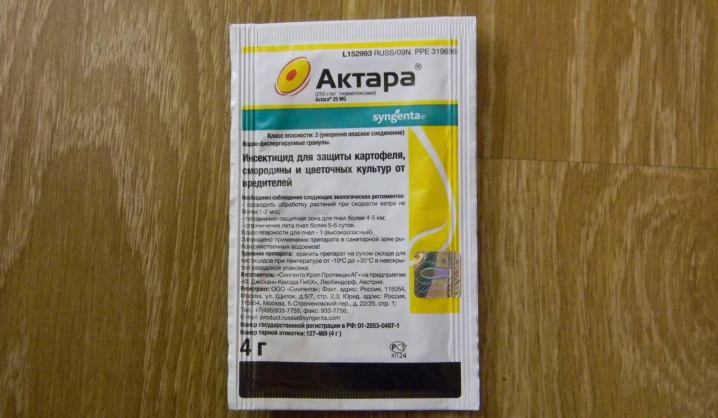
Folk remedies
Gardeners who don't trust chemicals can use some of the traditional methods. They are not as effective, but the harm from them is much less.
- Soda solution. Water with soda will be an excellent prevention of powdery mildew. Dissolve 50 grams of the product in a bucket of water (it is better to dissolve it in a glass of hot water beforehand) and mix with a small amount of grated or liquid soap.
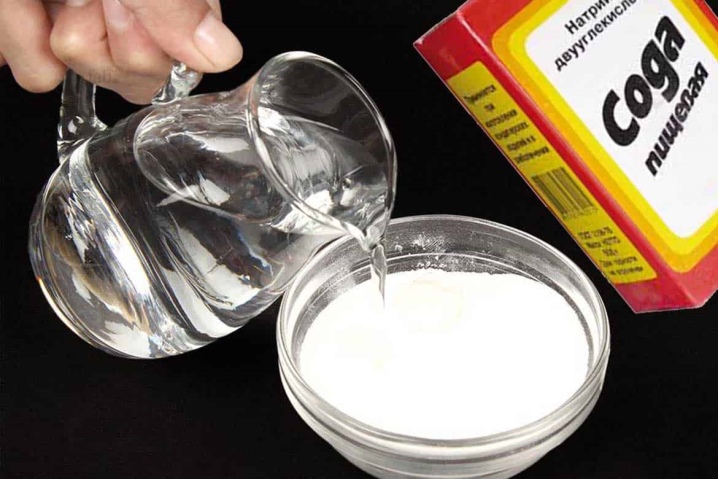
- Ash and soap solution. This is also a good remedy for the prevention and treatment of powdery mildew. 2 kilograms of ash are poured into a container with a volume of 15 liters, and 100 grams of soap is added there. After a day, the complex can be used.
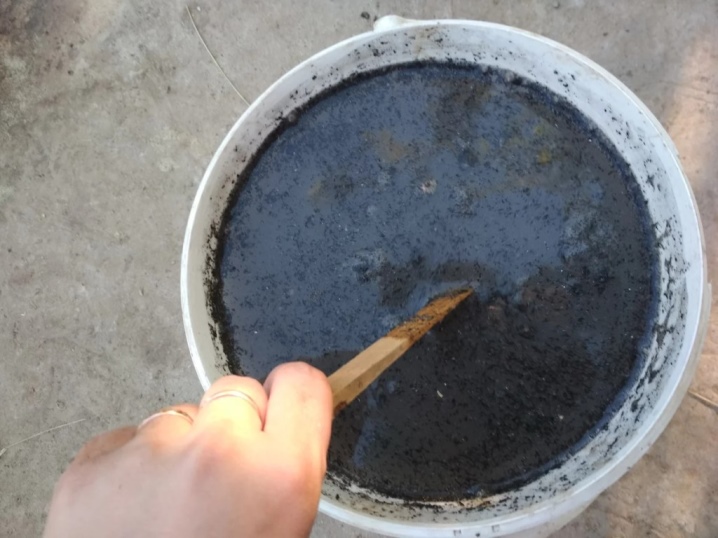
- Kefir. A great way to prevent fungal diseases. To make a solution, you need to take kefir (1 part) and warm water (8 parts). It should be used immediately, repeating the treatment every 2 weeks.
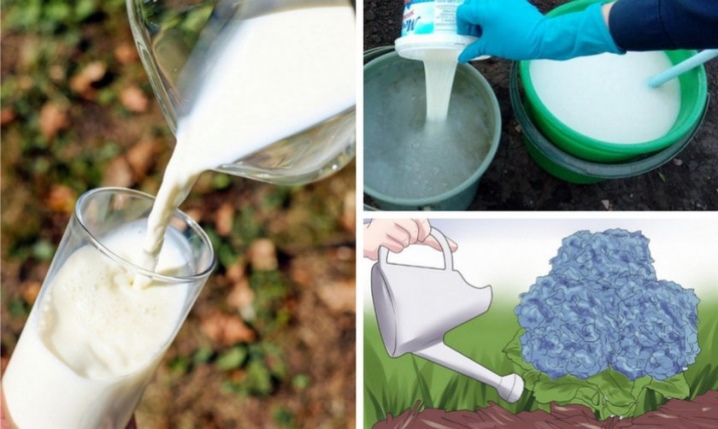
- Infusion of garlic. The pungent smell will keep aphids and other insects away. Take fresh green garlic, any parts, and then grind into a gruel. Next, pour a bucket of heated water, leave for a day. Before use, supplement with 10 grams of iodine.
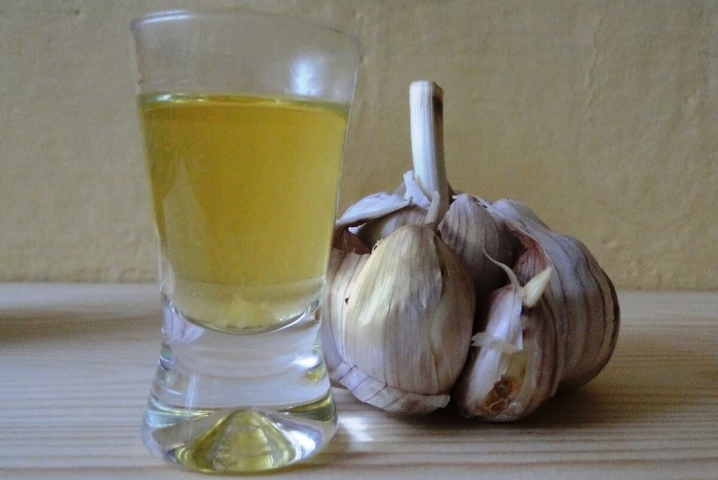
- Kerosene. If the scale insect often parasitizes plants, then you can get rid of it with the help of kerosene. A liter of water is slightly warmed up, 70-80 grams of grated soap is poured into it, and then half a teaspoon of kerosene is poured. It must be applied immediately.
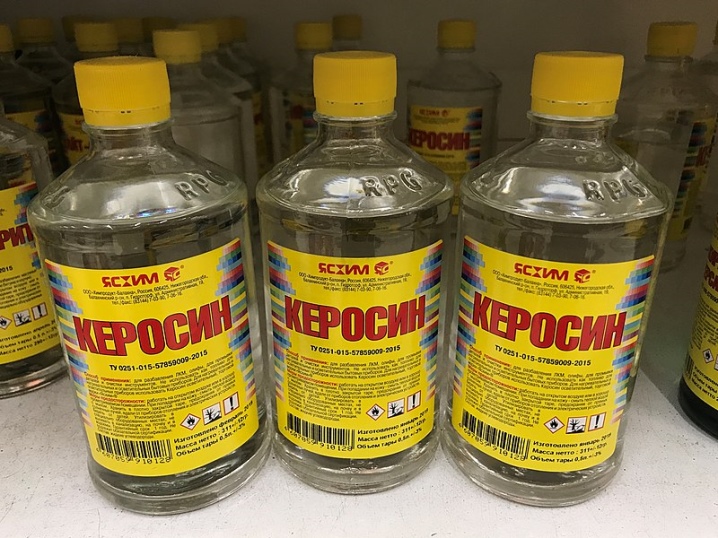
In addition to those described, the following tools are also popular:
- tobacco infusion;
- infusion of celandine;
- a decoction of tomatoes or tansy.
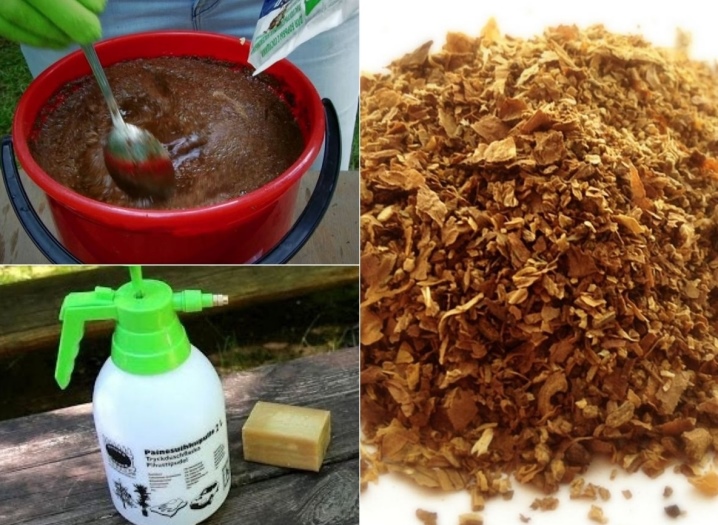













The comment was sent successfully.